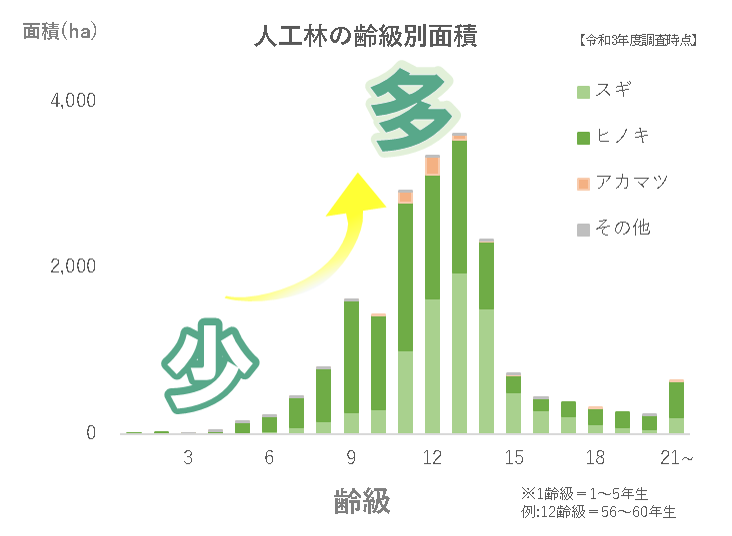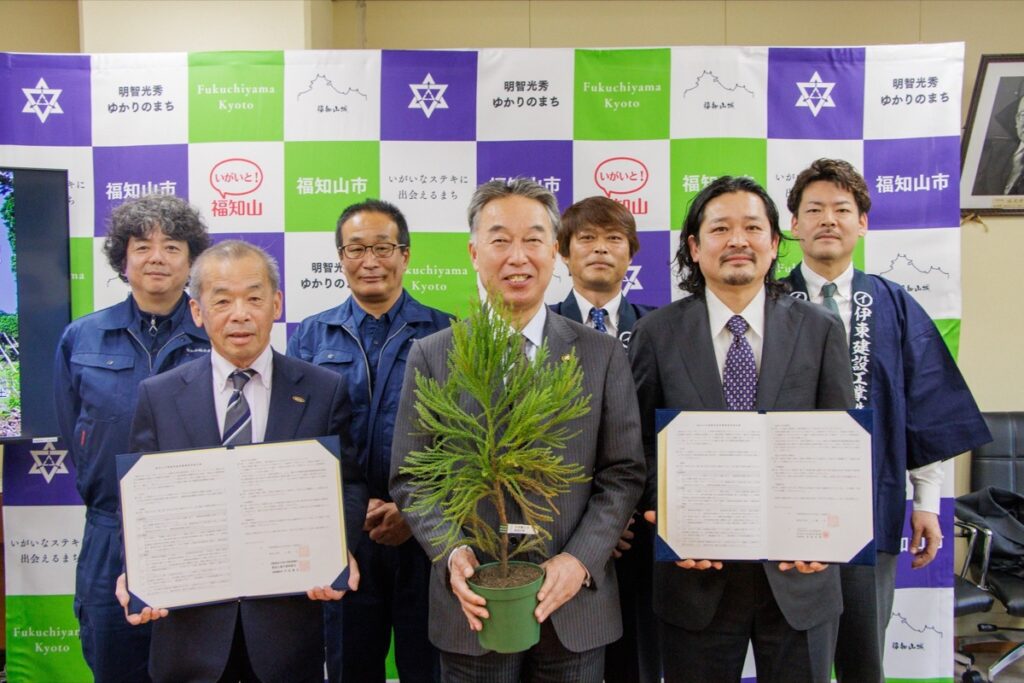Updated by "Forest Circular Economy" Editorial Board on April 12, 2025, 8:51 PM JST
Editorial Board, Forest Circular Economy
Forestcircularity-editor
We aim to realize "Vision 2050: Japan Shines, Forest Circular Economy" promoted by the Platinum Forest Industry Initiative. We will disseminate ideas and initiatives to promote biomass chemistry, realize woody and lumbery communities, and encourage innovation in the forestry industry in order to fully utilize forest resources to decarbonize the economy, strengthen economic security, and create local communities.
On March 26, Fukuchiyama City in Kyoto Prefecture concluded an agreement with Fukuchiyama District Forest Cooperative and Ito Lumber for the promotion of recycling-oriented forest maintenance. This is the first public-private partnership in Kyoto Prefecture. The city aims to establish a cycle of "cutting, using, planting, and nurturing" forest resources in the city's planted forests, which have reached the end of their useful life.
As many of Japan's planted forests are approaching the end of their useful life, proper forest management has become an issue due to a lack of forestry leaders and profitability problems. In response to this situation, Fukuchiyama City has established a three-way partnership among the government, forestry cooperatives, and private companies.

Under this agreement, Fukuchiyama City will provide the policy framework, while Fukuchiyama District Forestry Cooperative will combine its expertise in afforestation, silviculture, and logging with forest management know-how, and Ito Lumber will combine its knowledge of wood processing and distribution with its expertise in special logging and construction fields. By clearly dividing the roles of each, the aim is to ensure that the cycle of "harvesting, utilization, afforestation, and cultivation" of planted forests functions efficiently within the region.
Fukuchiyama District Forestry Association and Ito Lumber have long been involved in forestry with deep roots in the region. It is hoped that more effective forest development will be achieved by combining local knowledge and technology with government policies.
Fukuchiyama City has approximately 75% of the city's forest area, and the age of cedar and cypress trees, which are artificial forests planted after World War II, is concentrated in the 51-70th grades. This is a trend that can be seen nationwide. While the cedars and cypresses planted during postwar afforestation expansion (50-70 years ago) have matured and are ready for harvesting, the recent 30 years or so have seen an extremely low number of young forests due to low wood prices and the burden of afforestation costs.

Currently, forests that have reached the utilization stage (the time when cultivated forest trees are harvested and cut) are feared to fall into disrepair and adversely affect the ecosystem if they are not properly logged and renewed. In order to address issues such as limited municipal financial resources and a decrease in the number of forestry workers, there was an urgent need to establish a sustainable forest management system.
Through the public-private partnership scheme, Fukuchiyama City aims to solve multifaceted issues such as climate change countermeasures, revitalization of the local economy, and inheritance of forest culture.
This initiative has the potential to promote the proper management and use of forest resources and contribute to the revitalization of the forestry industry. Well-maintained forests are also expected to contribute to the maintenance of public interest functions such as land conservation and water source recharge, as well as to improve the CO2 absorption function through recycling-oriented maintenance, reduce the risk of landslides, and conserve biodiversity.

This initiative is unique in that it is not simply a government initiative, but rather a partnership between local forestry businesses and the government on an equal footing. The goal is to build a sustainable forest management model that allows local resources to be recycled within the community, while maximizing the power of local businesses that have practical know-how from tree planting to tree growing and harvesting.
This agreement in Fukuchiyama City may serve as a model case for the management and utilization of planted forests that have reached the end of their useful life. This move to promote the recycling and utilization of forest resources by the government and local businesses working in unison may serve as a reference for forest policies in other regions as well.